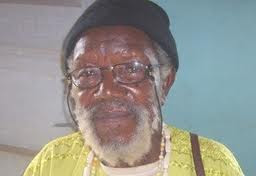According to the US department of State, Cameroon is a state dominated by a strong presidency and backed by the leaders of armed forces and the Cameroon People Democratic movement, that is in power since the creation in 1985.
And this is the Cameroon that is going to have presidential election next year.The 2007 legislative and municipal elections had significant deficiencies in the electoral process, including barriers to registration and inadequate safeguards against fraudulent voting, according to international and domestic observers.
Three years after that there is no change and things still the same. Opposition parties are struggling with the authorities to register their members and to have even the ID card. Opposition leaders in Cameroon often face difficulties to hold public meetings. Authorities sometimes refused to grant permission to hold rallies and meetings.The most ridiculous thing in this is that, after 49 years, authorities in Cameroon are still afraid of the Southern Cameroon National Council.
Will Biya really want a power-sharingdeal?
The government considered the SCNC illegal because it advocates secession and had never registered as a political party or organization.
During the year security forces primitively arrested approximately 102 leaders, members, and supporters of the SCNC to prevent them from participating in unauthorized political meetings.
For example, on February 23, security forces in Mutenguene, South West Region, arrested 25 SCNC activists gathered in the residence of one of their national leaders. Security forces later released them.
On March 21, Bamenda police, North West Region, arrested approximately 70 SCNC activists who were meeting to discuss the UN's demarcation of the Cameroon-Nigeria border. The police released them the following day without charges.
In accordance with provisions of the 2008 penal code, officials released, pending trial, individuals who were detained for participating in illegal gatherings of the SCNC.
During the year police put the houses of Southern Cameroons National Council (SCNC) officials and activists under surveillance, searched the houses of some SCNC leaders, and disrupted SCNC meetings in private residences.
In October, in response to a 2003 complaint filed by the SCNC, the African Union Commission on Human and Peoples' Rights acknowledged serious human rights violations committed
by the government against secessionist anglophones, while at the same time dismissing anglophone secessionism.
by the government against secessionist anglophones, while at the same time dismissing anglophone secessionism.
An administrative authority may authorize police to conduct neighborhood sweeps without warrants.
Such sweeps at times involved forced entry into homes in search of suspected criminals or stolen or illegal goods. Security forces sometimes sealed off a neighborhood, systematically searched homes, arrested persons, sometimes arbitrarily, and seized suspicious or illegal articles.
Such sweeps at times involved forced entry into homes in search of suspected criminals or stolen or illegal goods. Security forces sometimes sealed off a neighborhood, systematically searched homes, arrested persons, sometimes arbitrarily, and seized suspicious or illegal articles.
In February and March security forces conducted street sweeps in the Douala neighborhoods of Akwa and Bonandjo and arrested dozens of suspects.
While security forces subsequently released some, others were kept and transferred to the prosecutor's office on various charges including theft, aggression, and evasion. Some of the recovered stolen items included electronics and cell phones. And this would not stop now and will even worsening in the next coming months.
While security forces subsequently released some, others were kept and transferred to the prosecutor's office on various charges including theft, aggression, and evasion. Some of the recovered stolen items included electronics and cell phones. And this would not stop now and will even worsening in the next coming months.



No comments:
Post a Comment